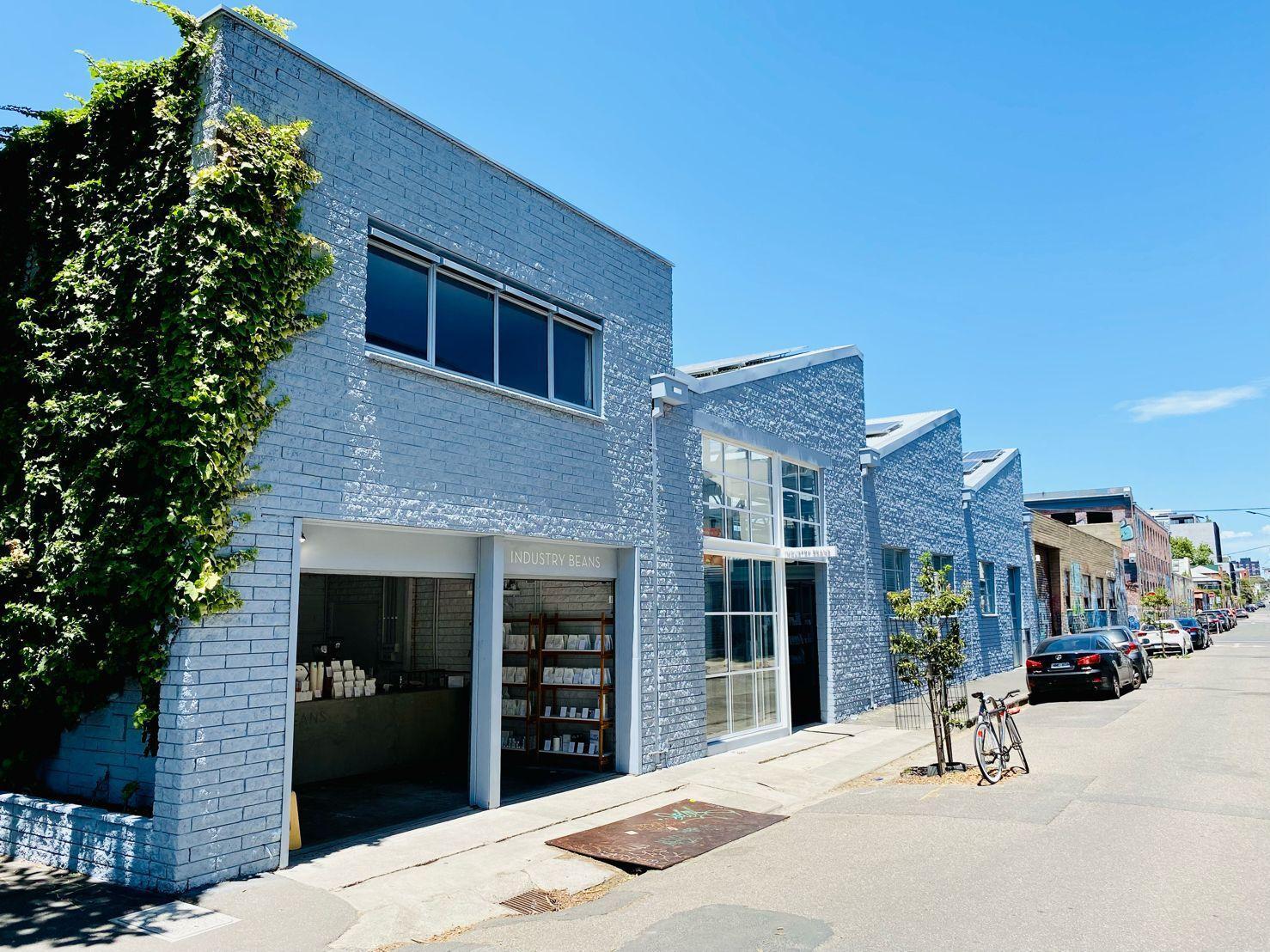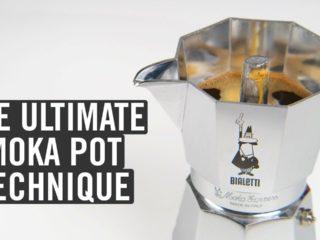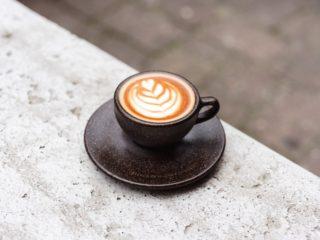André Eiermann’s Observations of Australia (Part I)
Australia is one of the hottest places in the world for coffee and culture, and to be more specific, Melbourne and Sydney both jostle for the top spot of the Australian coffee capital. As a result, there are an abundance of coffee roasters in both Melbourne and Sydney.
We’ve recently been drawn to André Eiermann’s rather wonderful descriptions of his trips to Australian coffee roasteries and coffee shops, and with his very kind permission we’ve reproduced them here.
Be prepared to get wonderfully lost in the sunny back streets of Melbourne and Sydney, and enjoy André’s particular appreciation for the small details.
Get exclusive updates from CoffeeCode right in your inbox
André Eiermann is a certified Q-Grader and is the 2017 Swiss Barista Champion.
His coffee travels have taken him all around the world, from his original home of Switzerland to his current residence in Australia, where he is the General Manager of Victoria Arduino Australia & New Zealand.
Here are the articles. Grab a coffee, sit back and be transported to the sunny streets of Melbourne.
Stitch Coffee Roasters, Sydney







Let’s work backwards and start with the last specialty café that I visited during my first trip to Sydney – STITCH COFFEE. The beautifully designed interior was striking. I especially liked the beautiful wooden furniture, the bar, tables, chairs, shelves, and the sustainable reworked flooring. The graphic design of the packaging is playful and so colorful. To put it in simple words: it is super cool. Just have a look at Louis, the penguin! Louis has friends, they love skateboarding 🛹 and they do many more things together.
I wanted to start with a filter coffee: there were two options. First a washed Kenya 🇰🇪 (Mwira AB – fully washed: grape, honey, and blackcurrant) and secondly a Colombian coffee 🇨🇴 (Finca Villarazo – honey process: honey, cherry jam and cinnamon stick. That was an easy pick for grandpa 👴. I went for the washed Kenya and explained to the barista, that I am an old man and a bit old school. She smiled, served me the Kenyan coffee but also gave me a little cup of the Colombian coffee to try. That was super nice. Indeed, I also enjoyed this coffee with strong flavors of cinnamon and herbal notes of chamomile.
I went for the washed Kenya and explained to the barista, that I am an old man and a bit old school. She smiled, served me the Kenyan coffee but also gave me a little cup of the Colombian coffee to try.
While sipping the outstanding Kenyan filter coffee, I read the interview with Prof. Chahan Yeretzian from ZHAW Zurich University of Applied Sciences in Global Coffee Report about capsule coffee extraction, that we wrote together with Dr. Samo Smrke Dr. Anja Rahn PhD MRSC and Loïc-Marco Guélat. It felt like having a coffee in Sydney with these brilliant researchers.
And then came the show-time of Daoz! She served me a very beautiful looking flat white, that tasted great. The Higgs Field Blend did not only cut nicely through the well textured milk. The milk and the coffee were in a perfect harmony. The texture was super smooth, and the sweetness was very high, just phenomenal.
Both female baristas did an amazing job. THANK YOU Logz and Daoz for your great hospitality. I had an amazing time, and it was a great experience. Also, a big THANK you for the Shinkai Steeped Coffee Bags, and the Isshu-Kan Drip Coffee Bag. I will let you know about it once I brewed it back home in Melbourne.
Patricia Coffee Brewers, Melbourne




Today, we went to visit a true specialty coffee institution in Melbourne – Patricia Coffee. The menu was simple, yet exquisite: an espresso blend made from two origins – San Vincente from Huila, Colombia 🇨🇴 and Nensebo from Sidamo, Ethiopia 🇪🇹. The filter coffee was a single origin – Kenya 🇰🇪 Gondo from Murang’a county.
During my first weeks in Melbourne, I have already enjoyed many outstanding coffees. Most of them were cultivated and processed by well-known producers. Today, I would enjoy three outstanding coffees, each produced by several hundred smallholders.
While Brett went for the Kenyan filter coffee on ice, I have chosen a magic with the espresso blend from Colombia and Ethiopia, followed by the Kenyan filter coffee. The ice coffee came in a stylish metal hip flask. The fully transparent ice cube 🧊 had smoothened edges and its big size perfectly cooled down the coffee without diluting it. The magic came with a beautiful visual contrast between the coffee and the milk. Taste wise, the espresso cut nicely through the milk, which gave a beautiful smooth texture and a high sweetness.
The filter coffee was clean and sweet. The 560 smallholders from the Kiriti Farmers’ Cooperative Society (F.C.S.) have done a terrific job. It is said, they pick the cherries and bring them to the factory that same day for selection and separation, as hand sorting happens before depulping begins. The ripe cherries are processed using fresh water from the local Kananahu stream, and the coffee is then dried under the Kenyan sun on East African drying beds.
It is beautiful to see, that unknown smallholders can produce equally tasty coffee as well-known rock-star producers.
It is beautiful to see, that unknown smallholders can produce equally tasty coffee as well-known rock-star producers. A big thank you also to the friendly barista team from Patricia Coffee: they have been very welcoming, and we had a great chat about the workflow in a busy café. That was very insightful. See you soon.
Seven Seeds Coffee Roasters, Melbourne






I had a relaxing walk from Brunswick to Melbourne CBD. I was on a very special mission. Today I wanted to learn more about the IMPACT REPORT FY 20-21 from SEVEN SEEDS COFFEE ROASTERS. We often say #MAKECOFFEEBETTER: making coffee better, doesn’t only mean make tastier coffee, but making the coffee business more sustainable along the entire value chain in terms of PLANET x PEOPLE x PROFIT.
A few days ago, I already enjoyed a tasty single origin espresso roasted by Seven Seeds at Brother Baba Budan. The coffee was produced by Mustefa Abalulesa in Ethiopia at 2,150 masl. Growing coffee at such a height and under very thin air conditions is already a great achievement. In the cup, the coffee tasted very clean and sweet. A beautiful product.
Therefore, I had high expectations when I arrived at their Roastery & HQ. The building itself was already very beautiful, simple, with exposed bricks, full of green plants, and filled with minimalistic but natural furniture. On a table I grabbed a copy of their Impact Report and went to order a flat white and a Toast ‘n Sardine. The coffee was a blend of 50% Ethiopia (Awel Teha) and 50% Guatemala (Los Ancestros). The well textured milk gave this flat white a beautiful sweetness, and I especially enjoyed the harmony between the milk and the coffee.
My breakfast choice was an interesting mix of oily (sardines), savory (parmesan cheese), spicy (pickled paprika) and sour (lemon). I tried everything one by one, mixed two ingredients as a pair and finally enjoyed everything together. Why not? I have been working now in sensory for more than 20 years. But every new combination surprises me, and I cannot get enough about exploring food.
I tried everything one by one, mixed two ingredients as a pair and finally enjoyed everything together. Why not? I have been working now in sensory for more than 20 years. But every new combination surprises me, and I cannot get enough about exploring food.
As always, I ordered a filter coffee as a desert: because specialty coffee must be clean, and sweet. Today’s coffee was especially sweet – for two reasons. First, the coffee itself was perfectly cultivated and processed at origin, and well roasted and brewed here in Australia. Therefore, the coffee tasted clean and sweet in terms of flavor. I then looked up the farm – Los Aguacatones. The Morales family first entered the Cup of Excellence Competition in 2017, where it placed as a national winner. 2017 was exactly the year, when I attended the COE Guatemala as an international sensory judge. Again, specialty coffee is such a small world. The Impact Report showed that the Morales Family received $7/LB (farmgate) for their coffee. That is sweet too: PLANET x PEOPLE x PROFIT.
I have enjoyed my visit at Seven Seeds a lot and I believe transparency is an important part of the specialty coffee business model. Thank you, a lot, for the outstanding hospitality, the team was very nice, and answered all my “funny” questions.
Axil Coffee Roasters, Melbourne




Today’s coffee discovery tour took me to Ethiopia 🇪🇹 (virtually). I walked from my apartment in Brunswick along Sydney Road through Princess Park straight to Axil Coffee Roasters in Melbourne Central. The staff gave me a warm welcome and a comfortable seat inside their very busy café.
There were two single origin coffees on today’s menu, both from Ethiopia. The first coffee was a washed process, mixed Heirloom from CHECHELE washing station. This washing station is in the district of Kochere within the Yirgacheffe region. The coffee has been cultivated in an altitude of 1,800 to 2,000m. I tasted this coffee as a flat white. In the cup I enjoyed notes of toffee, milk tea, and with an Earl Grey-like floral finish. These subtle jasmine notes went well with the sweetness, and the smoothness of the well textured milk.
Of course, I followed the suggestion of the barista. I like that the baristas in Melbourne do not shy away and give me their personal recommendations.
By now I understand that the Melbourne coffee scene is not only about coffee, but much more about breakfast, brunch, and food in general. Therefore, I went for the zucchini, corn and haloumi fritters with poached egg, avocado, crispy sweet potatoes, spinach, and tomato relish. Of course, I followed the suggestion of the barista. I like that the baristas in Melbourne do not shy away and give me their personal recommendations. I enjoyed the contrast of different temperatures of certain ingredients, the contrasting textures, and the spiciness of the sauce.
For the dessert, I have chosen the second Ethiopian coffee as a filter. The beans grew at an altitude of 1,850 to 1,880m and were processed as a natural at the famous ARICHA washing station in the Yirgacheffe region. I am very familiar with this coffee, as I have bought it twice for our own specialty coffee line. I have even chosen the washed processed coffee for my participation at the Swiss Barista Championship back in 2017. It is surprising how small our specialty coffee world is. I arrived at the other side of the world, to taste the same coffee I enjoyed so much at home in Switzerland.
Thank you very much for the great memories.
Industry Beans Specialty Coffee Roasters, Melbourne







What makes the Melbourne specialty coffee scene so special? Is it the specialty coffee, or is it the delicious food? It could also be the stylish presentation of the food and beverage offer as well as the hyper sleek architecture and interior design of the specialty coffee shops.
Today I had the pleasure to explore Industry Beans at their COFFEE ROASTERY & CAFE in Fitzroy, Melbourne. I received a very warm welcome from their staff: “WELCOME to INDUSTRY BEANS!” They had two espresso house blends and one single origin espresso. I decided to go for the SUMMER espresso blend as a flat white. Guess why? This blend consisted of a natural Kenya (Endebes: SL28, SL34, Batian, and Ruiru 11) and a natural Brazil (Nascer Do Sol: Catuai and Bourbon). The barista textured the milk well. There was a great harmony between the coffee and the milk. The mouthfeel was very smooth and creamy, and I liked the sweetness.
But wait for the food! I asked the friendly barista to suggest me her favorite breakfast dish. She recommended me the “PORCINI NEST”, a porcini dusted egg, potatoe nest, wild mushroom duxelles, kale, pickled mushrooms, and truffle oil. Sounds delicious? It was delicious, and the food presentation was stunning.
As a coffee lover, I went for a filter coffee as a dessert, a yellow honey processed coffee from Colombia (Wilder Lazo: Pink Bourbon, 1,600 to 1,800 m). It came with beautiful notes of lychee, manuka honey, and papaya. I especially liked the high sweetness, and the cleanliness of this coffee.
Coffee connects people: it was a very romantic experience because I was surrounded by two love couples. It was cute to hear both asking similar questions: “Do you have brothers or sisters?” I enjoyed my visit.
Coffee connects people: it was a very romantic experience because I was surrounded by two love couples. It was cute to hear both asking similar questions: “Do you have brothers or sisters?” I enjoyed my visit. I loved the architecture and interior design. The coffee menu was large, and my order tasted great. There would have been even a decaf coffee from Mexico (Bourbon, Caturra, and Typica: 900 to 1,100m, Swiss Water processed). The brunch looked and tasted fantastic, and both the staff and the guests were very nice, kind, and entertaining.

This article was created with content written by André Eiermann
Thanks to André Eiermann for very generously giving us permission to use his content from his LinkedIn posts.
André Eiermann is the General Manager of Victoria Arduino Australia & New Zealand.
You can find André on LinkedIn here. Give him a follow for more coffee culture and inspiration!

About CoffeeCode
CoffeeCode is the UK’s fastest growing and most exciting coffee website, and has a focus on great coffee, inspirational design and sustainability.
We always do our best to attribute photos, videos and quotes and information to their original sources. Please contact us if an attribution or content is missing or incorrect.




